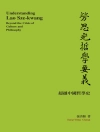In this book, Shlomo Biderman examines the views, outlooks, and attitudes of two distinct cultures: the West and classical India. He turns to a rich and varied collection of primary sources: the Rg Veda, the Upanishads, and texts by the Buddhist philosophers Någårjuna and Vasubandhu, among others. In studying the West, Biderman considers the Bible and its commentaries, the writings of such philosophers as Plato, Descartes, Berkeley, Kant, and Derrida, and the literature of Kafka, Melville, and Orwell. Additional sources are Mozart’s Don Giovanni and seminal films like Ingmar Bergman’s Persona.
Biderman uses concrete examples from religion and literature to illustrate the formal aspects of the philosophical problems of transcendence, language, selfhood, and the external world and then demonstrates their plausibility in actual situations. Though his method of analysis is comparative, Biderman does not adopt the disinterested stance of an ‘ideal’ spectator. Rather, Biderman approaches ancient Indian thought and culture from a Western philosophical standpoint to uncover cultural presuppositions that can be difficult to expose from within the culture in question.
The result is a fascinating landmark in the study of Indian and Western thought. Through his comparative prism, Biderman explores the most basic ideas underlying human culture, and his investigation not only sheds light on India’s philosophical traditions but also facilitates a deeper understanding of our own.
表中的内容
Acknowledgments
Introduction
1. Far and Beyond: Transcendence in Two Cultures
2. One Language, Many Things: On the Origins of Language
3. My-Self: Descartes and Early Upani ṣads on the Self
4. No-Self: Kant, Kafka, and Nāgārjuna on the Disappearing Self
5. ‘It’s All in the Mind’: Berkeley, Vasubandhu, and the World Out There
Notes
Bibliographical Notes
Index
关于作者
Shlomo Biderman is professor of philosophy and dean of the Faculty of the Humanities at Tel Aviv University. He has published widely in the fields of comparative and Indian philosophy.












